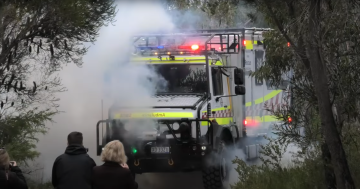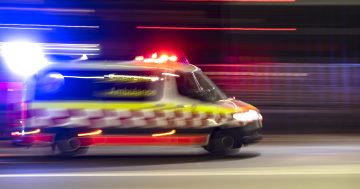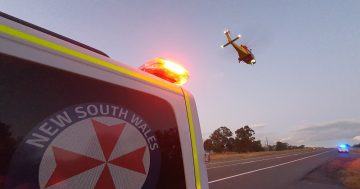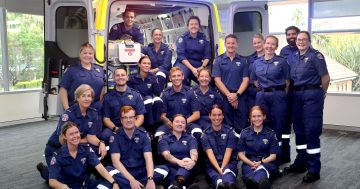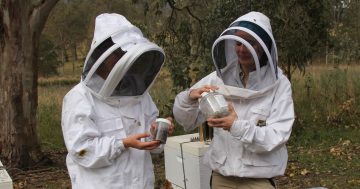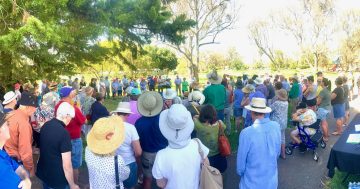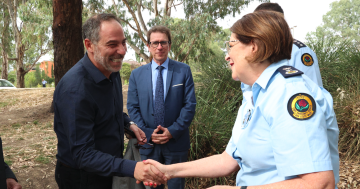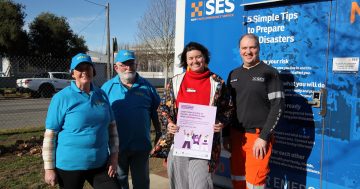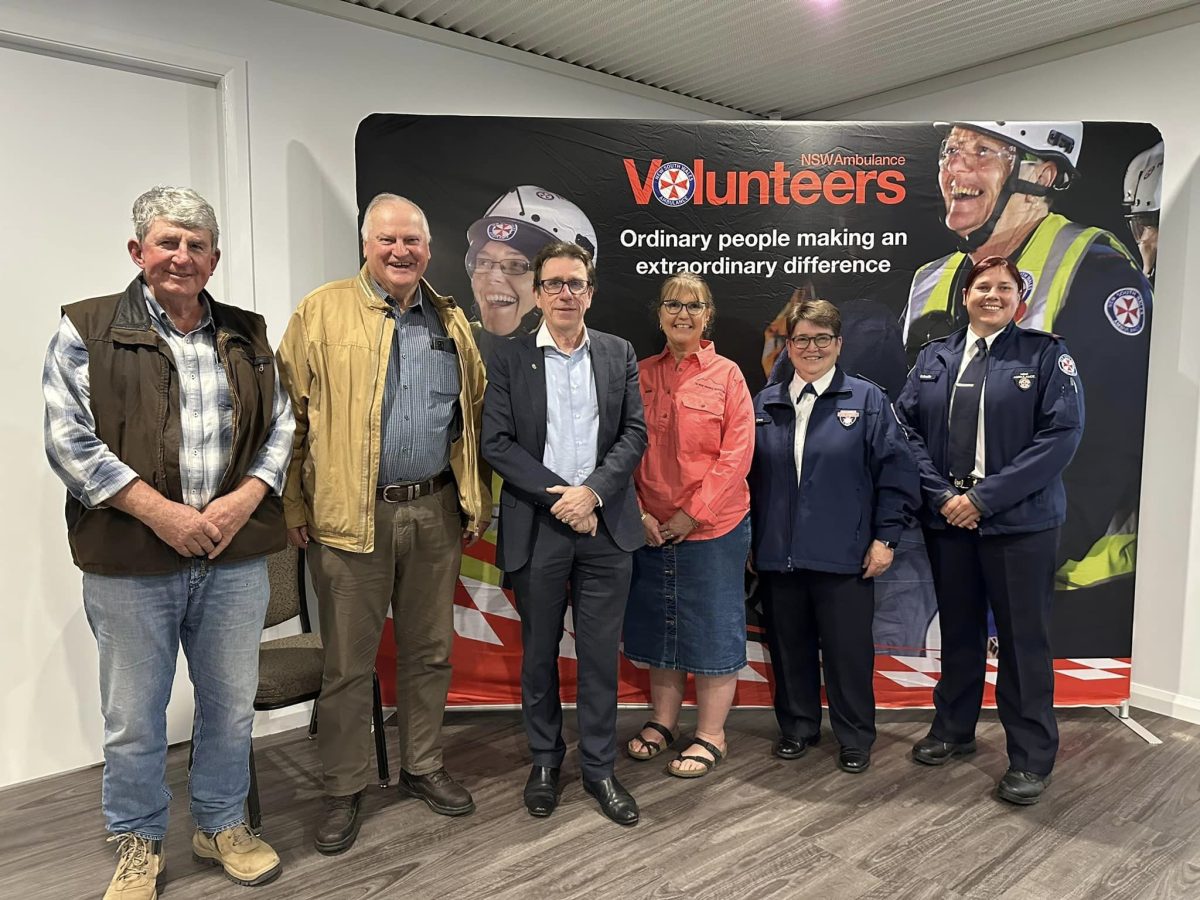
Members of The Rock Progress Association, NSW Ambulance and Dr McGirr at a recent information evening. Photo: The Rock Progress Association.
The Riverina town of The Rock has taken up the chance to develop its own ambulance service with community members now approved to begin training in autumn next year.
Volunteers will train to become members of a NSW Ambulance Community Emergency Response Team (CERT) and they are hoping to be serving The Rock and surrounding communities by the end of 2025.
The Rock Progress Association Chair Kelly Forrest said they were excited by the opportunity to learn skills that would provide crucial emergency care.
“This is another example of The Rock community uniting to meet an important local need and delivering a service that can save lives in times of emergency,” she said.
“Although we are close to Wagga, having a team of local people on the ground in The Rock will ensure trained experts are ready, willing and able to respond to calls for help at a moment’s notice – and it’s a great credit to our community that the idea has been so well supported.”
Community Emergency Response Teams are designed to assist smaller, regional communities and are comprised entirely of NSW Ambulance clinical volunteers who are trained and equipped to a high standard to support paramedics in times of need.
They minimise the time between calling for help and receiving initial care before paramedics arrive, which leads to improved patient outcomes and could save lives.
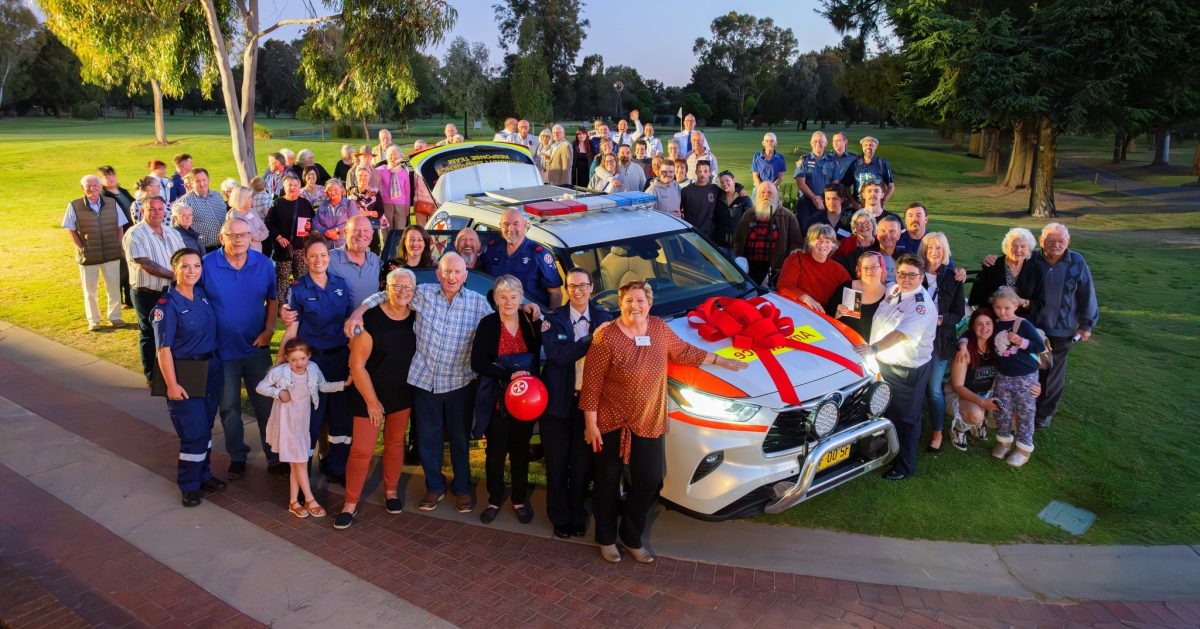
The Howlong Community Emergency Response Team was launched in November 2023. Photo: NSW Ambulance.
The Independent Member for Wagga Wagga, Dr Joe McGirr, said it was a great testament to the passion and dedication of local people.
“Once the need for a service was established, NSW Ambulance assessed the support of the community at public meetings and there was a terrific response from potential volunteers who are keen to train in life-saving skills,” he said.
“It means well-trained volunteers in a rapidly growing community will be on hand 24/7 to respond to emergencies in the area, providing fast, localised ambulance care when it is most needed.”
Volunteers are expected to begin their nine-to-12-month training program in late April or early May next year, including classroom learning and driver training combined with shifts on the road with qualified paramedics in 10-to-12-week blocks.
Successful volunteers will graduate with nationally accredited Certificate II qualifications, complemented by a range of clinical credentials.
“This is a great illustration of the way in which communities like The Rock have identified a problem and worked together to solve it,” Dr McGirr said.
“In some cases, this can-do attitude by The Rock community could literally make the difference between life and death and I’m proud to have helped make the proposal a reality.”
The new CERT team will receive a fully stocked ambulance vehicle when the training is completed, with the volunteers to run their own rosters and be on call around the clock.







